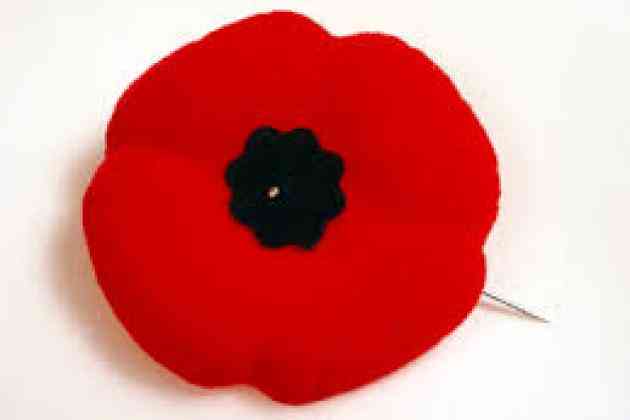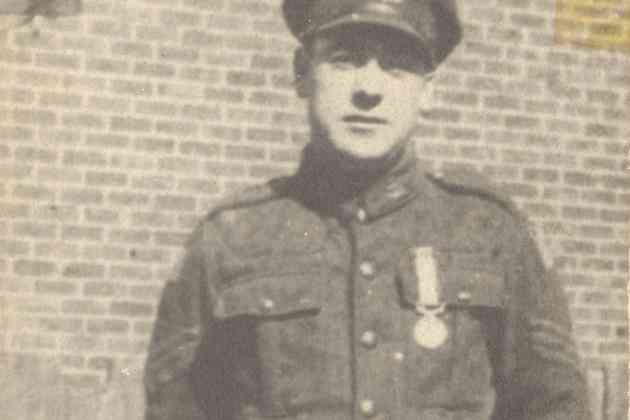Christmas in South Africa
Bertha M.C. Shaw’s* Laughter and Tears: Memoirs From Between the Limestone Hills and the Blue Georgian Bay, Ontario which was published by Expedition Press, New York in 1957, presents a variety of memories, themes and locations, but begins with her reflections on Remembrance Day in Owen Sound:
It was Friday, November 11, 1955, Remembrance Day, misty and dark, as we stood grouped in the park opposite the Legion Hall on First Avenue West, Owen Sound, to honour those who had kept us free, to observe a silence for the dead and to reflect a while [sic], “Lest we forget.” As I stood waiting for the service to begin, memory fled backward to the wars in my time.
Few people there would think of the Boer War [also known as the South African War, 1899-1902, fought between the British and Afrikaners: Dutch settlers] and I daresay there would be no veterans of it present. It had occurred in my high school days, before Canada had become accustomed to the idea of taking part in the Empire’s affairs. I knew personally only three from this district who had been in it. Noble Jones of Springmount Derby (afterward my brother-in-law), trained in the military college at Kingston went over with the First Contingent. Sam Pearce of Sarawak and Bert Day of Woodford were of the Second Contingent. Bert Day was one of those who did not come back.
The passing of Nelson Mandela earlier this month bringing worldwide emphasis to his leadership in the struggle to end Apartheid, might cause one to become more curious about South Africa and its history, although it is a country seven time zones away from us. The Archives, along with Bertha Shaw’s book, holds letters from Noble Johnston Jones, 31st Grey Battalion, Canadian Special Forces South Africa, Transvaal Contingent, who sailed from Quebec aboard the SS Sardinian on 30 October 1899. Jones’ grandson, Larry Jones, in addition to researching and documenting his grandfather’s military service, also maintained copies of letters sent home as they were published in the newspaper.** A portion of one letter published, which was written a couple of days before Christmas, 1899:
Belmont, South Africa, Dec. 23, 1899
Dear brother Joe, – I have just heard the news that we are to be on the move in the morning for the Modder River, and I am taking the opportunity to write a few lines of good-bye. The order means that we are in for fighting. Everybody is glad, for nothing can be worse than what we have been going through during the last few weeks which we have been lying around here. We are going to make a raid on a Boer camp tonight, break it up and capture Dutchmen if possible. The heat is terrific and seems to affect us more in this country than at home, on account of so much sand. Everything seems burnt up… We have had only one pint of beer and it was doled out to each man on Xmas day. We are in the middle of summer in this country. It seems queer to hear of snow in Canada while we are burning with heat. I have had only one sick parade so far and that was through a slight attack of malaria. …
When analyzing the causes of WWI, one can point to the South African War and the tensions it fanned between Britain and the German Empire, which was sympathetic of the Boers; subsequently also emphasizing the superiority of the British Royal Navy, and contributing to the brewing German-British naval race. Certainly it was a template for Canadian overseas military expedition in WWI. The war has some inglorious legacies: guerilla warfare by the Boers, and on the part of the British, the first modern example of concentration camps, which ultimately contributed to Boer defeat.
Noble Jones for his part was not in a place he would, by his own accord, have chosen to be, but rather was contributing to a cause he believed in as a supporter of the empire and professionally trained in the military. He endured difficult marches, exposure to the elements, pesky insects and concern for his family at home, often making comments to the effect that they should not worry about him for he fully intended to come back – he did, to a public Town Hall gathering where silver medals were presented by Lieut. Col. Telford, Commander of the 31st Regiment to the returning “khaki clad lads.”
*Bertha Shaw, 1880-1973, was born in Keppel Township and was first an educator before becoming an author. There is a school named for Bertha Shaw in the Northern Ontario community of South Porcupine.
**Newspaper source not documented on the clipping, but likely the Owen Sound Sun, Owen Sound Times or Owen Sound Advertiser which were all in publication at the time.







